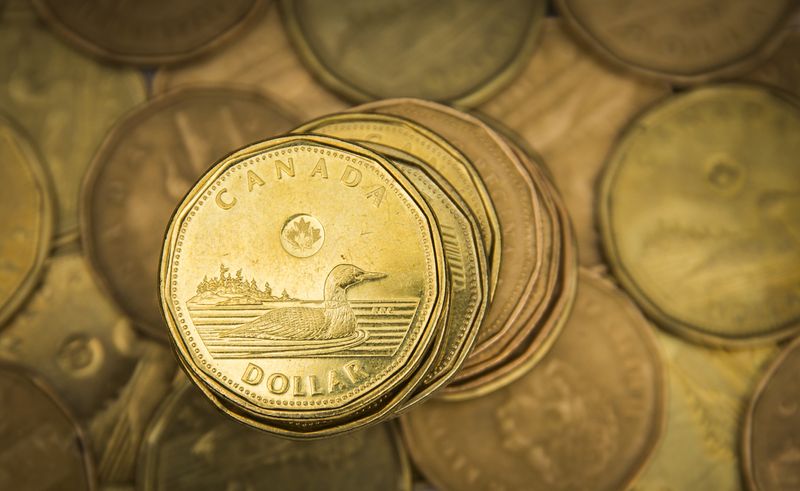
By Fergal Smith
TORONTO (Reuters) – The Canadian dollar is expected to rally against its U.S. counterpart in the coming year as lower borrowing costs boost the domestic economy but the result of the U.S. presidential election could unsettle the outlook, a Reuters poll found.
According to the median forecast of 40 foreign exchange analysts in the Oct. 28–Nov. 1 poll the loonie will strengthen 2.4% to 1.36 per U.S. dollar, or 73.53 U.S. cents, by end-January compared to the 1.3514 expected in last month’s poll.
In a year, the currency was predicted to advance 5.5% to 1.32, versus 1.3275 seen previously.
“Our forecast for a stronger Canadian dollar is based on the fact the Fed should catch up in its interest rate cutting cycle and the Canadian economy should recover quite strongly as the Bank of Canada cuts rates,” said Kyle Chapman, FX markets analyst at Ballinger Group in London.
On Tuesday, Bank of Canada Governor Tiff Macklem said the central bank is starting to see the impact on the economy of its easing. The BoC has cut its benchmark interest rate by one and a quarter percentage points since early June to 3.75%.
Canada’s economy is particularly sensitive to interest rate levels due to a short mortgage cycle and high household debt. At 184% of net disposable income in 2023, household debt was the highest by far in the G7, according to OECD data.
The Canadian dollar weakened around 3% in October, its biggest monthly decline since September 2022. On Thursday, it touched a near three-month low at 1.3945.
One potential wild card for the currency is the outcome of the U.S. presidential election on Tuesday. Republican candidate Donald Trump has proposed sweeping tariffs on imported goods. Canada sends about 75% of its exports to the United States.

“The election is a fork in the road … If we get a Trump presidency then perhaps the recovery wouldn’t be nearly as strong as we’re expecting right now,” Chapman said.
(Other stories from the November Reuters foreign exchange poll)
This post is originally published on INVESTING.




